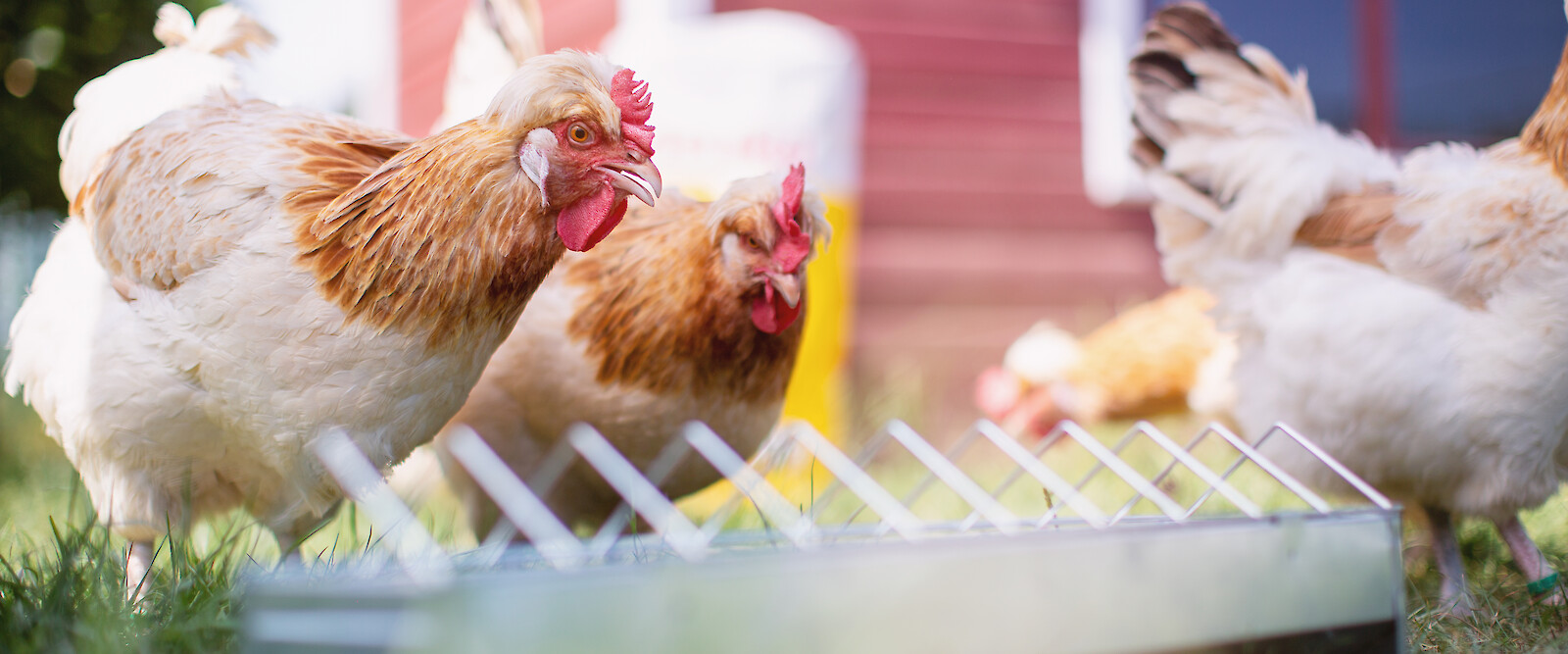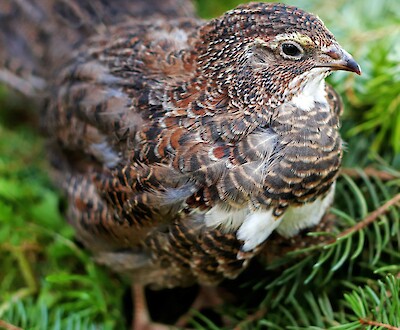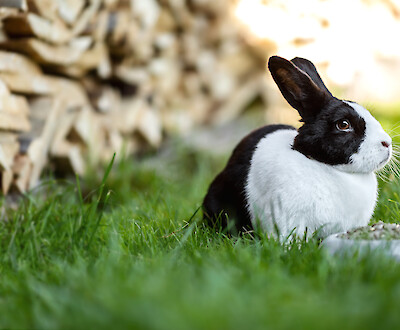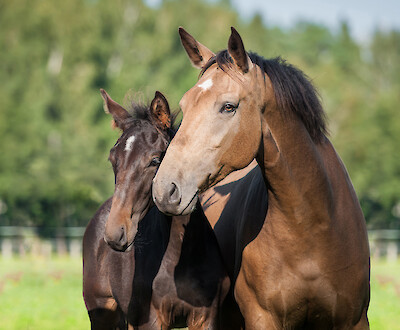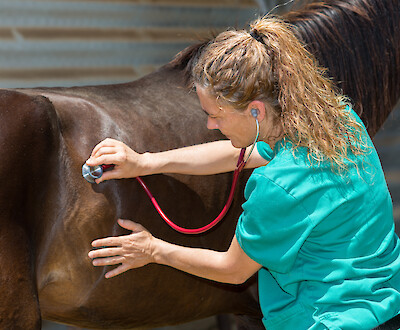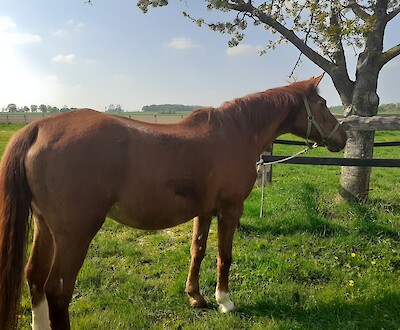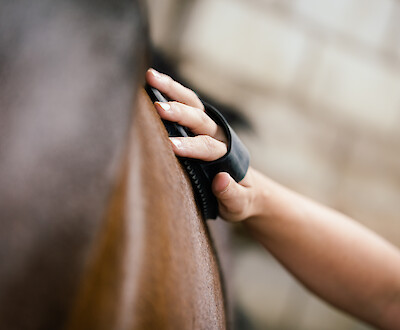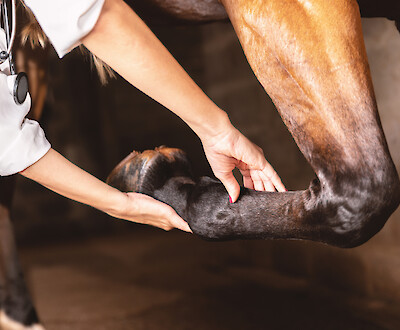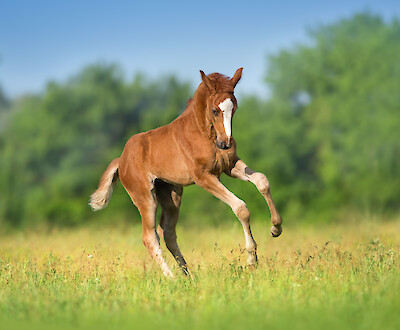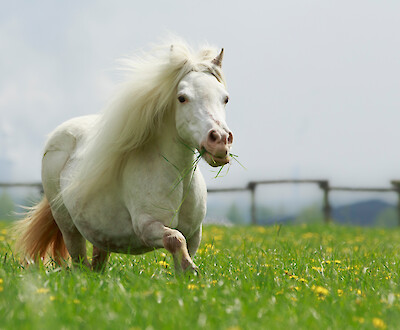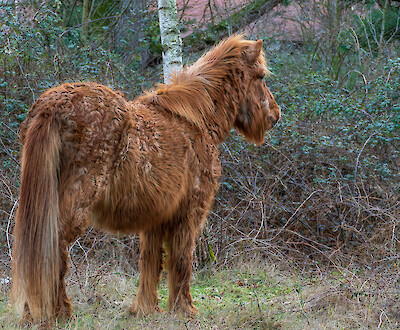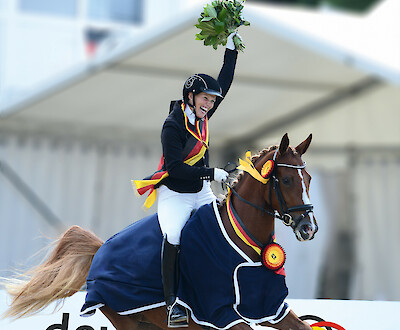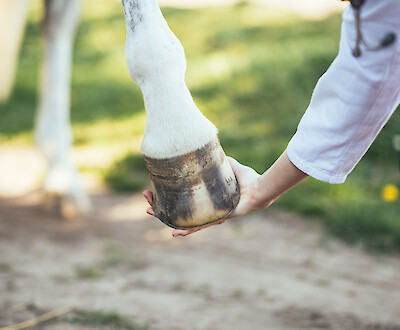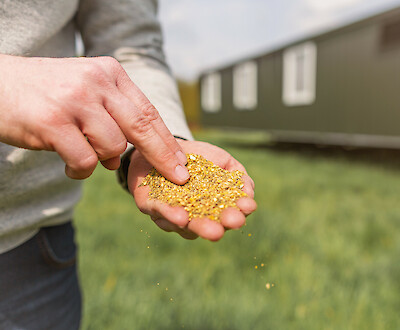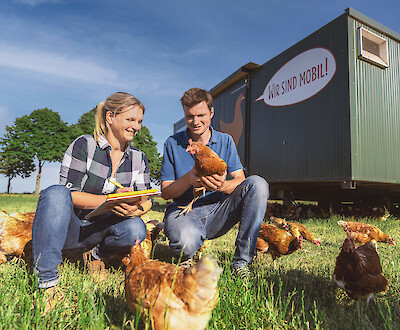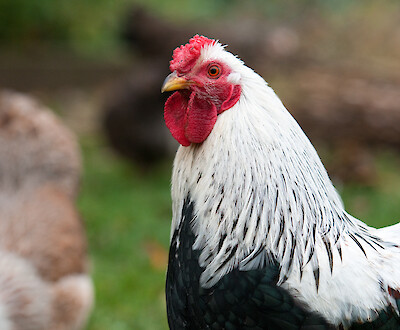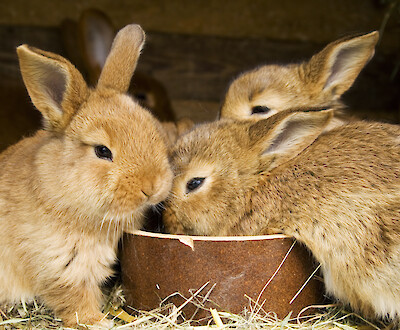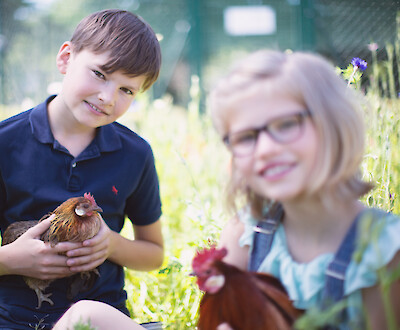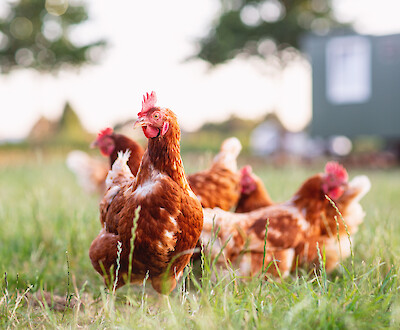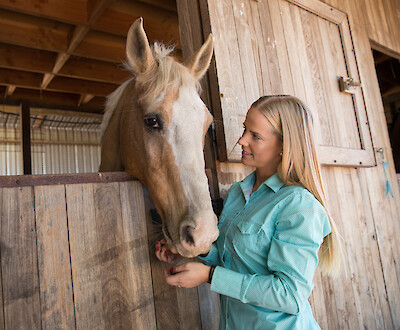Balanced hen feeding for tasty eggs
How contemporary is traditional chicken feeding with local ingredients?
Poultry farming in Germany is booming. This has not only been true since the Corona crisis. Young families and middle-aged people in particular are longing for a positive attitude to life and a connection to nature. What could be more natural than keeping chickens in the home garden? However, opinions differ as to the proper nutrition of the animals. Although there is a wide range of modern poultry feeds available today, the question remains open for many: How sensible is traditional poultry feeding like in grandma's time?
The crowing every morning takes many a new chicken farmer back to grandmother's times. What is modern and trendy today was everyday life in the countryside in those days. In those times, which were perceived as carefree, your own chickens provided fresh breakfast eggs. Special poultry feeds were still the exception back then.
Feeding like in grandma's time: A mix of home-grown ingredients
It is a common prejudice that chickens only peck grains. In complete contrast to this limited image, chickens are omnivores. Besides earthworms, snails, grasses, various vegetables and grains, chickens prefer a wide range of food. Chicken farmers have always taken advantage of this. Small group farmers in the post-war period usually provided their animals with a variety of local and fresh products - mostly from their own cultivation. From potatoes, peas and linseed to maize and grain, a colourful mix ended up in the feed trough. Not infrequently, food leftovers were also on the menu.
Chicken farmers used to feed their animals intuitively. However, after years of research, we now know that a balanced, wholesome diet is necessary for the welfare of laying hens. At the same time, a diet that meets the needs of the hens has a positive influence on the number and quality of the eggs and the health of the hens. Poultry farmers who want to enjoy their animals for a long time should therefore ensure that their animals are supplied with essential nutrients including vitamins, trace elements and minerals.
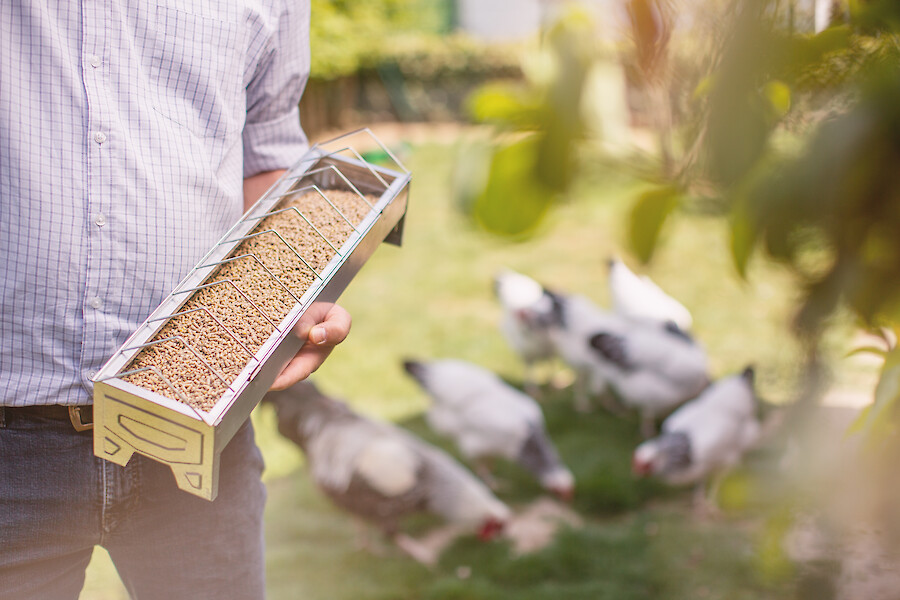
-
It sounds contradictory, but natural feeding with fresh products requires knowledge and precise understanding on the part of the chicken farmers. Many unprocessed ingredients can sometimes have an extreme effect on the animals' organism:
- Cabbage, for example, is only tolerated by chickens in small quantities.
- Various vegetables are toxic to chickens in their raw state (e.g. various nightshade plants such as potatoes, avocados, aubergines, tomatoes or peppers).
- Onions can cause jaundice or anaemia in poultry
- Fruits high in vitamin C (e.g. oranges or kiwis) sometimes cause bleeding in the animals' gastrointestinal tract.
- Treats and sweet foods can have a negative effect on the laying behaviour of the birds; similar applies to strongly spiced and/or salted foods.
- etc.
Simply feeding the chickens a selection of local products can therefore sometimes have serious consequences. If you want to feed your animals only fresh ingredients, you should therefore take a close look at the needs of your animals and their digestion. If this is too much for you, you can now feed your laying hens quickly and easily with the help of special feeds based on traditional recipes.
Is traditional chicken feeding also good for the climate and the environment?
Traditional chicken feeding with local ingredients is more contemporary than ever. Such a diet is not only balanced and provides hens with everything they need for a happy life and tasty eggs, it is also ecological and sustainable and thus good for the climate. Products from German or European cultivation are in many cases subject to the highest standards in terms of environmental compatibility and quality. Traditional poultry feed also does without soya. In grandma's day, beans, maize or peas provided sufficient protein in the feed. Such a laying hen feed is also free of genetically modified ingredients.
Hedwigs Hennenkorn: Modern chicken feed according to a traditional recipe
If you want to feed your laying hens in a traditional, environmentally friendly way, but also simply and without much effort, it is best to use complete feeds made from local ingredients. Hedwig's Hennenkorn is a soy-free and GMO-free complete feed for laying hens. It contains a variety of natural, local ingredients to provide the hens with the nutrition they need.
- High-starch wheat provides easily digestible energy and ensures a full-bodied egg taste.
- Peas provide essential amino acids that are vital for survival, for more vitality and a radiant plumage.
- Maize provides sufficient energy and protein for egg formation.
- Sunflower oil has a positive effect on the heart and circulation of the birds and makes the feed particularly tasty.
- Green fodder such as the alfalfa contained in the feed provides valuable vitamins A and C for optimal egg development and a strong egg yolk.
With the modern and safe feed, hen keepers can quickly and easily provide their birds with everything they need for a happy life and tasty eggs. Just buy, feed and you're done! This is good for your hens and at the same time protects the environment and the climate.
Contact person

Theresa Oesterwind
Contact person

